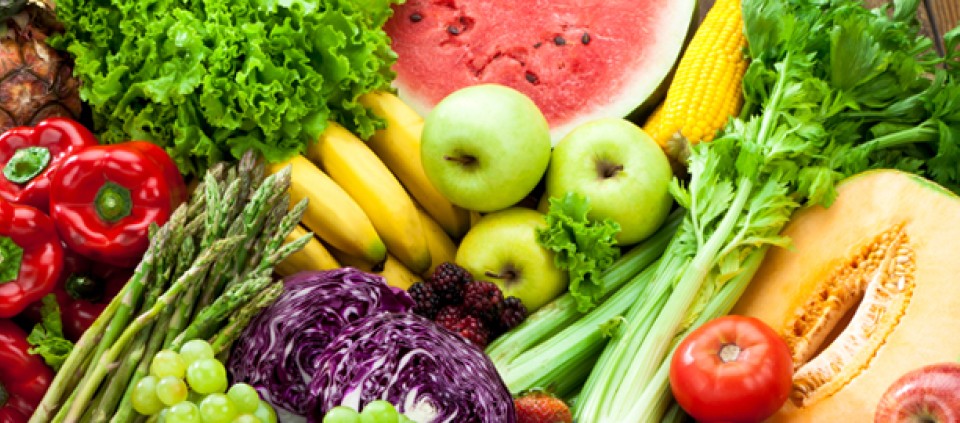Demystifying Detox: A Natural Approach

The concept of detox seems to speak to our very nature. From the story of Jesus in the desert to the holy days of Ramadan, the appeal of purification through renunciation, as a means of preparing ourselves to operate on a higher level, has deep roots in spiritual and religious history and practice.
Today, products for physical detox form a multimillion dollar industry. Unfortunately, misinformation on this topic is rampant, and popular detox products are sometimes ineffective at best. How do we guide ourselves through this potentially health enhancing yet confusing area, with an awareness of what is true, what is known, and what may be helpful?
Supporting Natural Detox
Detoxification—the process of transforming toxic chemicals to compounds more easily flushed out of the body—happens in every body all the time. But, in our unhealthy culture filled with processed foods, chemicals, and stress, our detox system can easily get overwhelmed or out of balance. When that happens, taking time to focus on supporting our natural detoxification process can help us feel and function better.
The complex cascade of reactions in hepatic (liver) detox is driven by specific nutrients and requires energy. In a multistage process wherein some metabolic intermediaries are free radical generating or free radicals themselves, the body requires a ready supply of a variety of antioxidants to prevent free radical damage and continue the detox process. Detoxification has been found to have a large degree of genetic variability, so one individual’s handling of the various detoxification processes may be very different from another’s.
Given what we know—and what we have yet to learn—about detoxification, the best way to support the cycle is through avoiding processed foods, chemicals, and common allergens, and instead eating plenty of low-allergy whole foods rich in amino acids and other nutrients involved in biotransformation. Drinking plenty of clean water, resting, breath work, and activities such as yoga all enhance aspects of the process. Meditative inquiry can bolster the process as well, and a time of nutritional detoxification can be an opportunity for profound life work.
Eating specific whole foods rich in detoxification nutrients helps to address the biochemical individuality that results from our genetic differences. Foods that fuel detox include certain beans, nuts and seeds, and most fruits and vegetables. These foods are clean sources of amino acids and phytonutrients (plant-based nutrients) such as flavanoids and antioxidants needed for detox. Watermelon, asparagus, and cilantro, for example, are great sources of a variety of detoxification nutrients, including glutathione, known as the mother of all antioxidants.
Fasting
Detoxification is energy dependent. Fasting (abstaining from food) triggers the first phase of detoxification, but may impair biotransformation, as the antioxidants and other nutrients and energy needed to complete the cycle are unavailable. It may be that extended fasting triggers the accumulation of activated intermediaries, without adequate quenching of free radicals formed in the process. There is promising research, however, focusing on intermittent fasting (fasting for relatively short periods of time) and its potential for increased longevity. Research on the relationship between energy intake, detoxification, and overall health continues to evolve. In the meantime, eating lightly and avoiding extended fasts is a health-enhancing choice.
Supplements and Testing
Generally, following a clean whole-foods diet provides the nutrients most people need to support detoxification. However, more high-quality products are now available that support gentle detoxification, and these may be helpful for some individuals. Likewise, there are now lab tests available that can aid in the assessment of our individual biotransformation pathways, and can inform the detoxification program that is right for us.
Colon Health
Our digestive and overall health relies on the trillions of microbes (more than all other cells in our bodies combined!) that live primarily in our colon. This microflora, aka gut bacteria, are involved in digestion, immune health, and the health of the gastrointestinal tract. Our "bacterial cities" can be influenced by our environment, diet, medications, and disease. Occasionally, due to poor diet, stress, or other factors, the gut bacteria become unhealthy, and are populated by an excess of bacteria that undermine health. Bringing the gut back into a balanced state supports the removal of toxins from the body and minimizes the creation of toxins in the colon.
The science of pre- and probiotics therapy to bring the microflora back into balance is a young and promising field. Ultimately, adopting a lifestyle that includes clean whole foods, physical activity, and stress management goes far to support ongoing detoxification and wellness. Options such as whole-foods and yoga weave physical and spiritual development for happiness and health.
Annie B. Kay, MS, RDN, E-RYT 500, C-IAYT, is an author, nutritionist, Kripalu faculty member, and important voice in whole-foods nutrition and yoga.
Full Bio and Programs